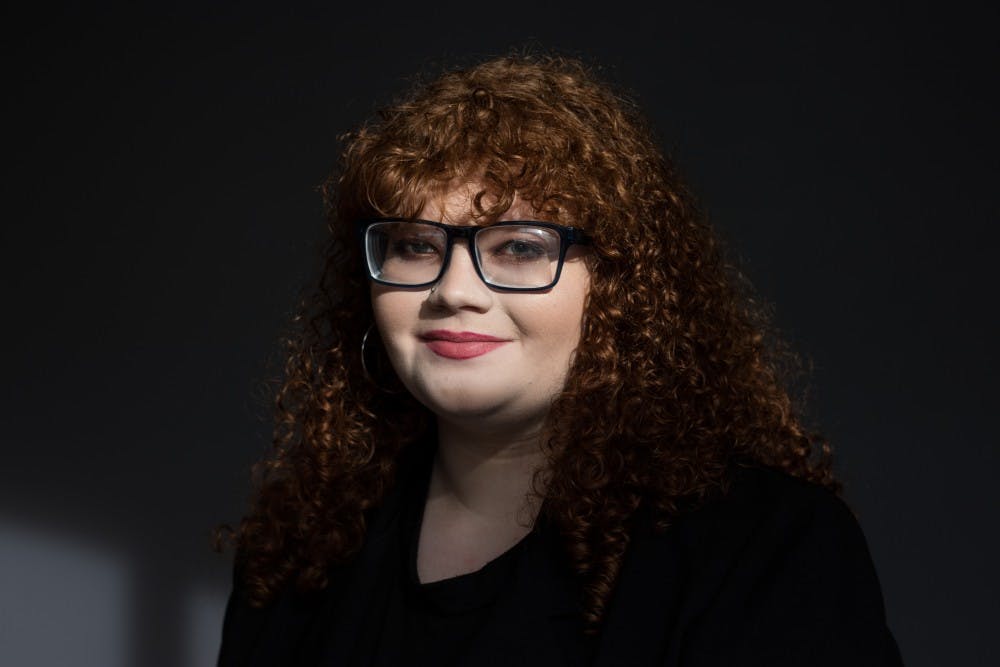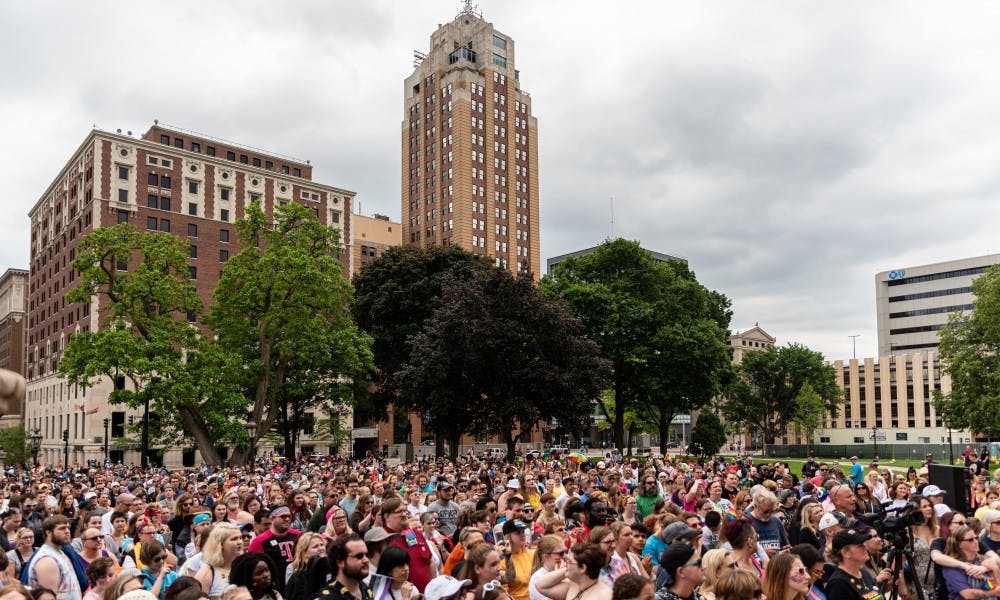
Before we dive into the utterly confusing and complex concept of "pride," let’s take a moment to refresh our knowledge of LGBTQ history.

A record crowd gathers outside of the Michigan Capitol for the 2019 Michigan Pride Rally on June 15, 2019.

Before we dive into the utterly confusing and complex concept of "pride," let’s take a moment to refresh our knowledge of LGBTQ history.
LGBTQ folks have existed since the beginning of human history, dating all the way back to ancient civilizations. But a big contributor to the modern LGBTQ movement as we know it was the 1969 Stonewall riots in New York City.
Protests and marches were a prominent part of the 1960s, not only at Stonewall, but with anti-war activists begging our government and military to “make love, not war”.
Particular groups of people find marches to be both unnecessary and inappropriate ways to promote social messages. But marginalized groups of people are not marching for your acceptance — they are marching to be seen, to be heard, to be identified. They are marching because they want to create discomfort, they want to make you uncomfortable. They want to show what it’s like to be strong and unified with fellow members of their community.
But I’d be wrong to not acknowledge the other side. It’s not fair to recognize one group, but not the other.
If you’ve been on social media — especially Twitter — at all in the last few months, you’ve definitely seen the phrase "straight pride." Most recently, there was an event in Boston, Massachusetts which was self-described as a “response to the ‘identity politics’ of the left," but attendees were vastly outnumbered by counter-protestors.
This particular protest was organized by Mark Sahady, who co-founded the group behind the rally alongside white supremacist Kyle Chapman. Sahady has ties to multiple violent white supremacist events, for example the alt-right rally in Charlottesville, Virginia in 2017.
It is important to acknowledge that straight pride is not a new idea. Liberal social media users share infuriated tweets and engage in charged debates with those who identify on the conservative side of the political spectrum, but straight pride is not a recent concept.
The slogan "straight pride" originated on college campuses as a form of social criticism in the late 1980s. If you’re familiar with the phrase "reductio ad absurdum," which is Latin for reduction to absurdity, then the entire straight pride movement might make more sense.
Simply put, straight pride, at its core, is an argument attempting to disprove the authenticity of gay pride and instead demonstrate the impracticality behind it. Their argument being that heterosexual people don’t talk about being straight, nor do they feel the need to proclaim or force others to accept their heterosexuality, so why do queer people?
I think it’s unfair for us — whether we identify as liberal or conservative, gay or straight, cisgender or transgender — to decide who is allowed to protest and what they’re allowed to protest about.
But when groups begin to threaten and harm others, it becomes a problem. There are a wide array of ways to peacefully protest. Yelling slurs and committing violence are not orderly or productive methods of promoting one's own beliefs. As human beings, we're allowed to have opinions that differ from our family, friends and peers — but how we choose to share our opinions is crucial.
As someone who doesn't identify as "straight," I'm not a supporter of the straight pride movement, but why should I be allowed to dictate what others can or should do? Some of my family members are not supportive of the gay rights movement, but why should they have the right to speak on the struggles of others?
This raises the question, "Which group is wrong?" Everyone is entitled to their own values, beliefs and opinions — which means you can’t write off either side as being wrong.
We have free will, which affects what we believe our moral obligations to be. While we have the ability to denounce others’ ignorance and refusal to conform, we can’t coerce them to change. We live in a bilateral society. There will always be two sides to any situation. The best we can do is try to understand our counterparts.
Support student media! Please consider donating to The State News and help fund the future of journalism.